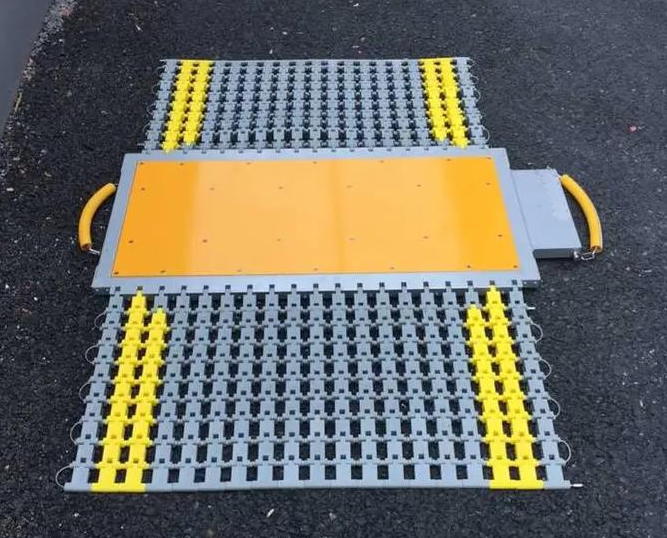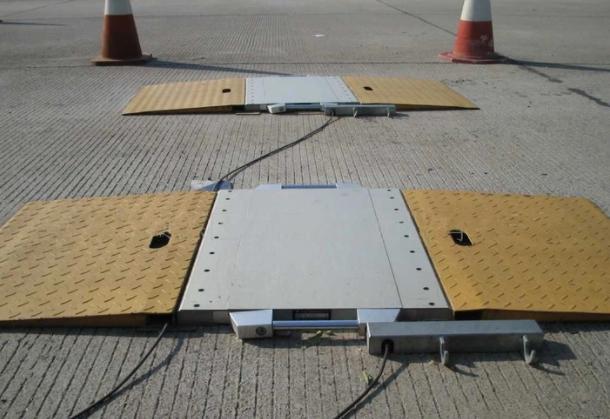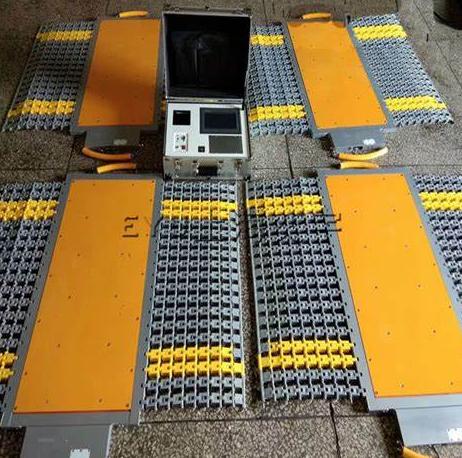Axle Load Scales Frequently Asked Questions (FAQs)
At Bincen, we offer axle load scales renowned for their exceptional quality and value. Our scales have a longer usage time than many competitors in manufacturing vehicle scales. This reflects our expertise and commitment to providing reliable solutions for our clients. You can trust that we will share our rich knowledge and effectively support your business. The following are the questions that our clients often ask.
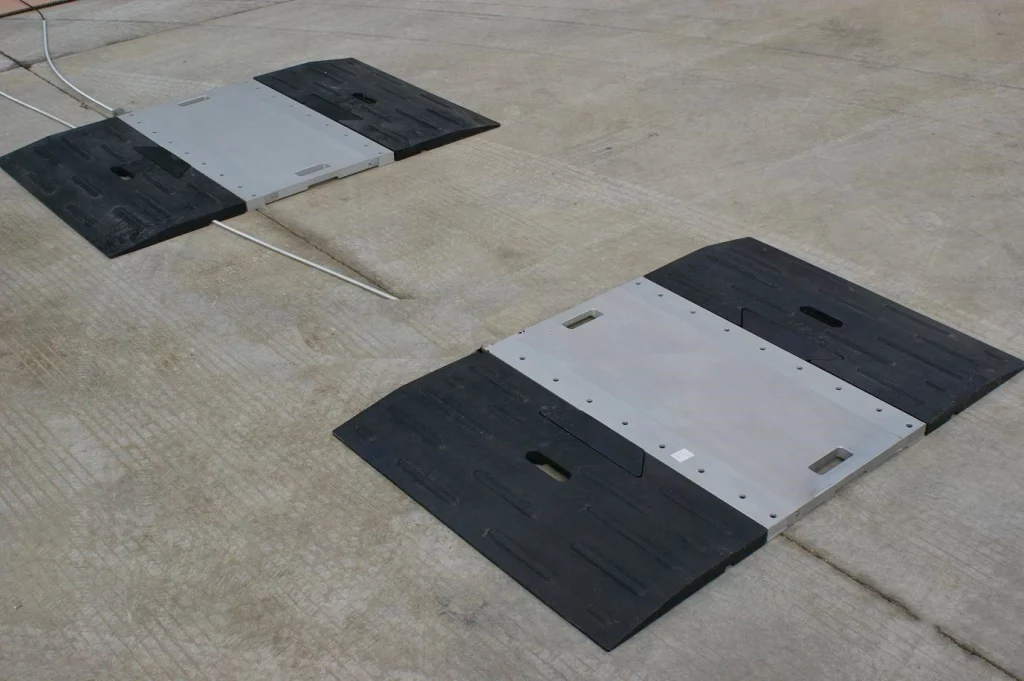
How Do Axle Load Scales Work?
Axle load scales function by measuring the weight exerted on each axle of a vehicle. These scales typically consist of a platform that the vehicle drives over. Underneath this platform are load cells, which are sophisticated sensors designed to convert the mechanical force of the vehicle’s weight into an electrical signal. This signal is then processed by a digital indicator, providing precise weight measurements.
The working mechanism of axle load scales can be categorized into two primary methods:
- Static Weighing: In static weighing, the vehicle stops on the scale, allowing for each axle’s weight to be measured while the vehicle is stationary. This method is highly accurate and is commonly used in applications where precision is critical.
- Weigh-In-Motion (WIM): This method allows vehicles to drive over the scales at low speeds, capturing weight data dynamically. Weigh-in-motion scales are particularly useful in high-traffic areas where stopping each vehicle would be impractical. While slightly less accurate than static scales, they provide the benefit of speed and efficiency.
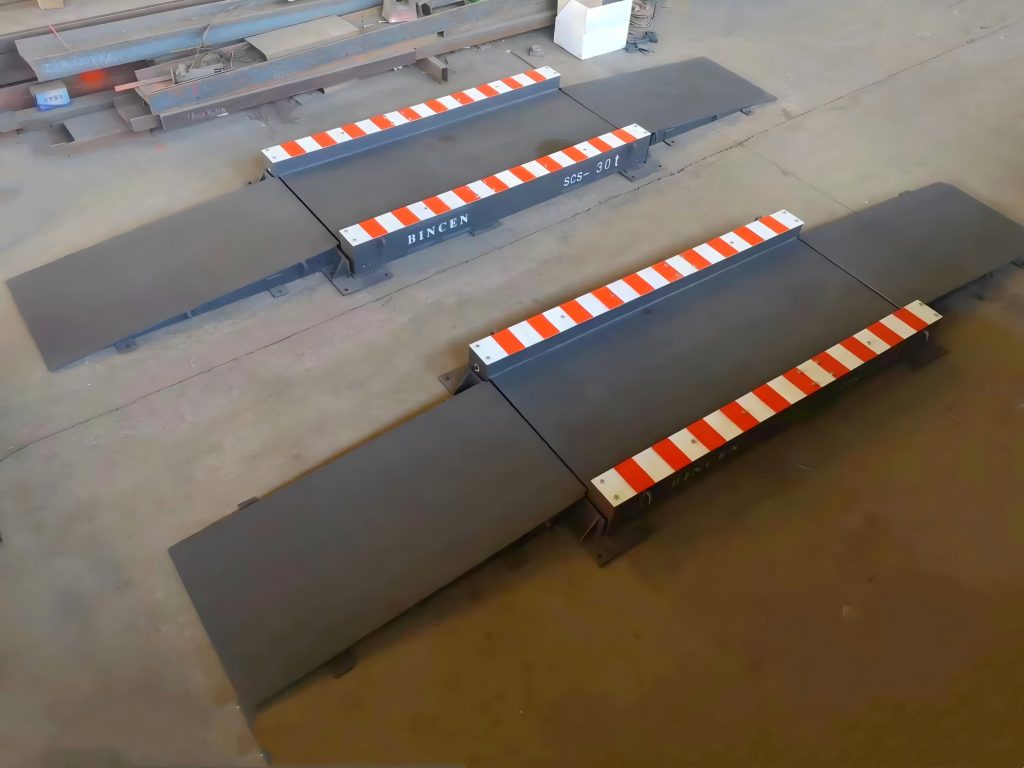
What Types of Axle Load Scales Are Available?
Bincen offers a variety of high-quality axle load scales to meet different operational needs. Here are some of our key products.
- Portable Axle Load Scale: These scales are designed for flexibility and mobility. Lightweight and easy to transport, they can be quickly set up in different locations, making them ideal for temporary installations and mobile operations. They are commonly used for roadside weight checks and in industries that need to weigh vehicles at multiple sites.
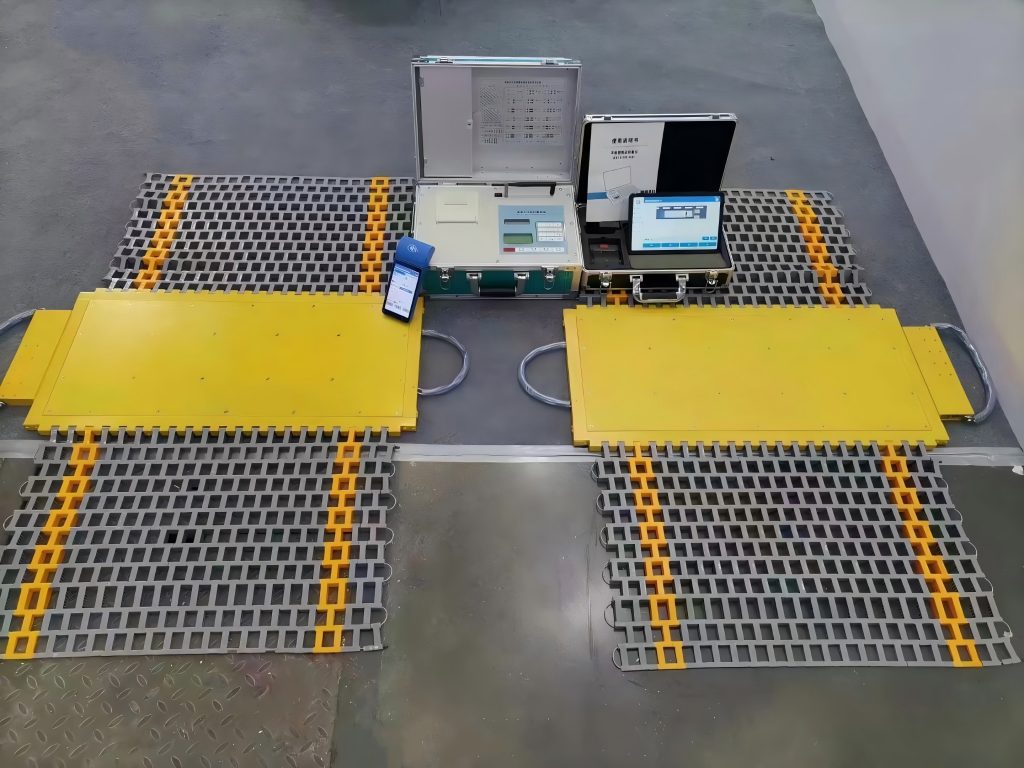
- Fixed Axle Load Scale: These scales provide permanent, robust solutions for stationary weight measurement. They are ideal for industrial sites, freight terminals, and logistics hubs where high-frequency, accurate weighing is required. Fixed axle load scales offer reliable precision and are designed to handle the constant flow of heavy vehicles.
- Highway Overrun Detection System: This system is designed to detect and record overrun events on highways. It helps monitor and enforce compliance with weight regulations, preventing overweight vehicles from damaging road infrastructure. This system is particularly useful for regulatory bodies and law enforcement agencies overseeing highway traffic.
- Highway Dynamic Axle Load Scale: These scales are installed on highways to measure the weight of vehicles in motion. They allow for continuous traffic flow while capturing axle weight data, making them suitable for high-traffic areas like toll booths and border crossings. They provide a balance between accuracy and efficiency, enabling quick weight checks without stopping vehicles.
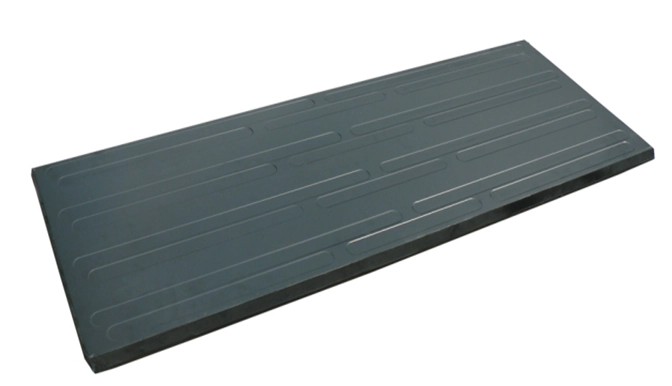
- Flat Panel Dynamic Weighing System: This advanced system provides dynamic weighing capabilities with a flat panel design. It is ideal for applications requiring high-speed, in-motion weighing, such as logistics hubs and industrial sites. The flat panel design ensures smooth vehicle passage and accurate weight measurement, enhancing operational efficiency.
How Accurate Are Axle Load Scales?
The accuracy of axle load scales is critical for precise weight measurement and compliance with regulations. Generally, static axle load scales offer higher accuracy than dynamic scales, with the latter measuring vehicles in motion. High-quality components, like precision load cells and advanced digital systems, contribute significantly to a scale’s accuracy.
- Regular calibration is essential for maintaining accuracy. Scales should be calibrated according to the manufacturer’s guidelines to ensure they provide reliable measurements. Environmental factors such as temperature and humidity can also impact accuracy, so it’s important to use scales designed to handle these conditions.
- Proper installation on a level surface and routine maintenance further help preserve accuracy. By adhering to these practices, you can ensure your axle load scales remain precise and effective for your operations.
Can Axle Load Scales Integrate with Software Systems?
Absolutely. Modern axle load scales are designed with integration in mind. They can seamlessly connect to various software systems, transforming raw weight data into actionable insights. This integration allows for efficient data collection, storage, and analysis. Software solutions can generate detailed reports, track vehicle loads, and even integrate with other business systems like transportation management software (TMS) or enterprise resource planning (ERP) systems. By harnessing the power of software, businesses can optimize their operations, improve decision-making, and gain a competitive edge
How Can Axle Load Scales Benefit My Business?
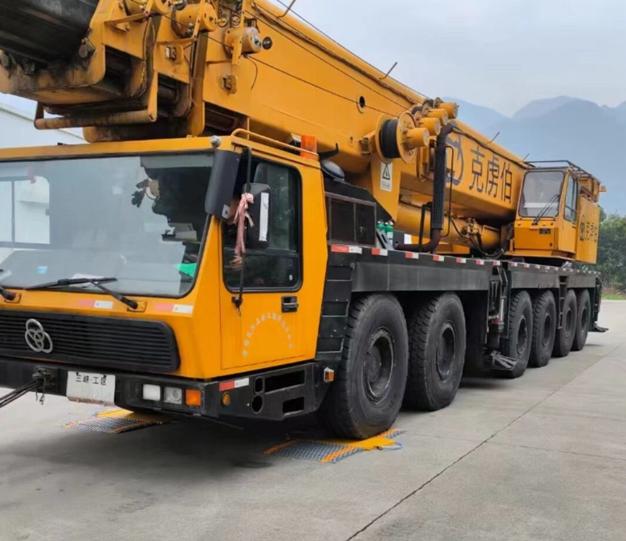
Axle load scales offer several significant advantages that can enhance your business operations and overall efficiency. Here’s how these scales can benefit your business:
1. Ensuring Compliance: One of the primary benefits of axle load scales is their role in ensuring compliance with legal weight regulations. Overloaded vehicles can result in hefty fines, legal issues, and damage to infrastructure. By accurately measuring axle weights, you ensure that your vehicles adhere to weight limits, avoiding penalties and contributing to safer roads.
2. Enhancing Safety: Properly managed axle weights reduce the risk of accidents caused by overloading. Overloaded vehicles are harder to control, increase braking distances, and can lead to tire blowouts. By using axle load scales, you ensure that loads are distributed correctly, enhancing vehicle stability and safety on the road.
3. Reducing Operational Costs: Accurate weight measurement helps optimize load distribution, leading to better fuel efficiency and reduced wear and tear on vehicles. This can lower fuel costs, extend vehicle lifespan, and decrease maintenance expenses. By preventing overloading, you also avoid the potential for costly repairs and replacements.
4. Improving Efficiency: axle load scales streamline the loading and unloading processes. They provide real-time data that helps in distributing loads evenly across axles, which can speed up operations and reduce downtime. For businesses with high traffic or logistics operations, this efficiency can translate into significant time and cost savings.
5. Enhancing Customer Satisfaction: Ensuring that deliveries are compliant with weight regulations and performed safely can improve your reputation with customers. Timely and reliable deliveries not only meet customer expectations but also build trust and encourage repeat business.
By integrating axle load scales into your operations, you can achieve these benefits and enhance the overall efficiency and safety of your business.
For more information about Bincen axle load scale, please view our website: truckscale-cn.com

